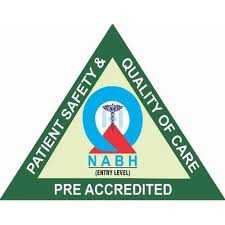
Symptoms of cataract: The commonest symptom is a progressive blurring of vision. The vision may be hazier in bright or low light. Altered perception of colours, glare & sensitivity to bright light, difficulty in night driving, seeing multiple images, seeing halos around lights, frequent changes in the power of glasses. Cataract usually develops in both eyes, but may be more in one eye than the other.
Delaying surgery does more harm than good. Long-term use of medication such as steroids, smoking, excessive alcohol consumption, and prolonged exposure to ultraviolet (UV) radiation might increase the risk of cataract development.
In early stages of cataract, vision can be improved by prescribing glasses, however, frequent change of glasses also places a financial burden on the patient. In such a situation, undergoing surgery is a better option.
There is a myth, especially in rural India, that the cataract needs to be ripe in order for it to be ready for surgery. This is a situation which should be avoided. A mature/white cataract has a high risk of causing rapid onset glaucoma which can lead to irreversible vision loss.
A rule of thumb which can be followed in order for one to know whether or not it is time for cataract surgery is, If the cataract is interfering with daily activities, vision is partially/not corrected with glasses, colour perception is sub standard, then it is time to get surgery and see the world crystal clear again!
Understanding Cataracts and Their Impact:
Cataracts, often linked to aging, are the clouding of the eye’s natural lens. This cloudiness leads to blurry vision, increased sensitivity to light, and difficulty distinguishing colors. As cataracts progress, they can hinder daily activities and reduce overall quality of life.
When is the Right Time for Cataract Surgery?
Determining the right time for cataract surgery is a collaborative decision involving the patient, their ophthalmologist, and an assessment of their unique circumstances. Several key factors influence this decision:
Visual Impairment: When cataracts significantly affect daily life and hinder activities like reading, driving, or recognizing faces, it might be time for surgery. The extent of impairment plays a crucial role in the decision-making process.
Quality of Life: The impact of cataracts on a person’s quality of life is a primary consideration. If blurred vision disrupts hobbies, social interactions, or work, surgery might be a viable option.
Ophthalmologist’s Assessment: An ophthalmologist’s evaluation of cataract progression is pivotal. Regular eye examinations help monitor the development of cataracts and guide the decision-making process.
Patient’s Age and Health: Age and overall health play a role in determining when to undergo cataract surgery. Younger patients might choose to delay surgery if their vision is still manageable, while older patients might opt for surgery sooner due to potentially slower healing and complications associated with age.
Patient’s Expectations: Understanding the patient’s expectations from the surgery is crucial. Some individuals might be content with corrected vision through glasses, while others seek complete independence from corrective eyewear.
Other Eye Conditions: Patients with other eye conditions, such as macular degeneration or glaucoma, might need to coordinate cataract surgery with their overall eye health management.
The Surgical Procedure:
Cataract surgery encompasses the extraction of the opaque lens and substitution with an implanted artificial intraocular lens (IOL. This outpatient procedure is highly successful and typically yields rapid improvement in vision. Advanced techniques, such as laser-assisted cataract surgery, have further enhanced the precision and outcomes of the procedure.
Benefits and Risks:
Understanding both the benefits and risks of cataract surgery is essential in making an informed decision.
Benefits:
Improved Vision: The primary benefit is the restoration of clear and sharper vision, reducing dependence on glasses or contact lenses.
Enhanced Quality of Life: Improved vision contributes to a better overall quality of life, allowing individuals to engage in activities they enjoy.
Safety: Cataract surgery is considered safe, with a high success rate and relatively low risk of complications.
Risks:
Infection: While rare, there is a small risk of infection after surgery.
Vision Changes: Some patients may experience slight vision changes or glare, especially during the healing process.
Retinal Detachment: This is a rare but serious complication that might occur after cataract surgery.
Preparing for Cataract Surgery:
Once the decision to undergo cataract surgery is made, adequate preparation is necessary. Consultation with the surgeon, pre-operative evaluations, and understanding the surgical process are vital steps.
After Surgery:
The recovery process is generally smooth, with most patients experiencing improved vision within a few days. However, following the post-operative care instructions provided by the surgeon is crucial to ensure optimal healing and the best possible outcomes.
In Conclusion: Assessing the need for cataract surgery demands a holistic assessment encompassing visual impairment, quality of life, age, health, and patient expectations. Vision Plus Eye Centre entails collaborative dialogues with an ophthalmologist, coupled with an in-depth grasp of the advantages and potential pitfalls of the procedure, which collectively steer the decision-making journey. Ultimately, pinpointing the opportune moment for cataract surgery is a unique expedition for each individual, mandating meticulous reflection upon these constituents. The transformative prowess of cataract surgery in Noida, amplified by Vision Plus, in terms of vision and overall quality of life, serves to underscore its momentous significance as a medical intervention capable of profoundly enriching one’s well-being.
Call Now at 0120-2481481, 2480480 +91 88003 13134 or email us at info@visionplus.net.in.
Book an Online Appointment: https://visionplus.net.in/contact/

